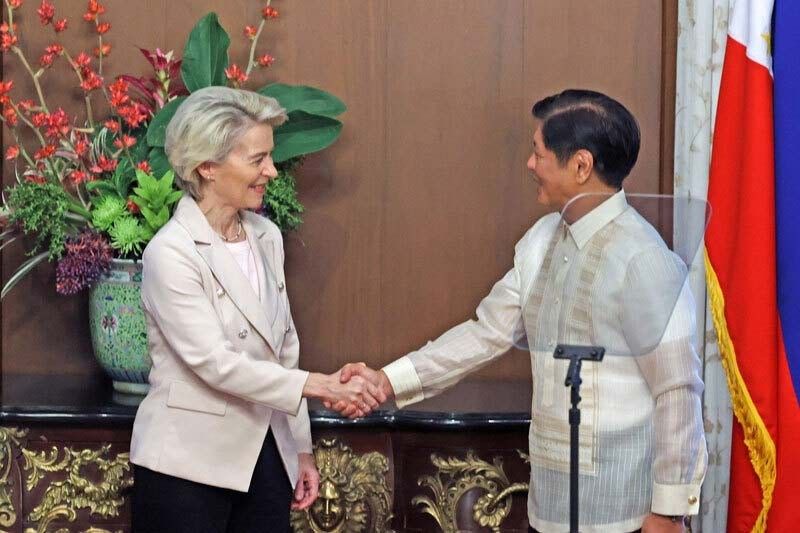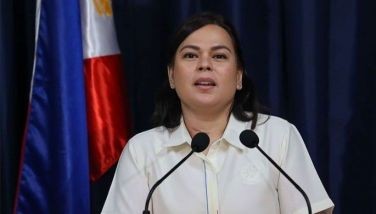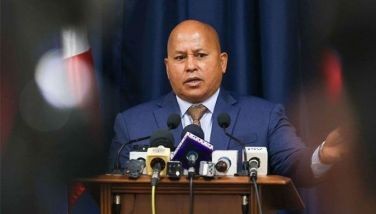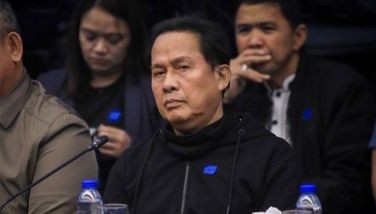Green Economy: Philippines, EU sign deal

MANILA, Philippines — The Philippines and the European Union signed yesterday an agreement for a 60-milion-euro Green Economy Program, which aims to support Manila in various areas, including circular economy, renewable energy and climate change mitigation.
The Green Economy Program in the Philippines (GEPP) is a flagship project of the EU’s Global Gateway. Launched in 2021, it is aimed at contributing to the development of emerging markets and developing countries, which are EU partners, particularly in the fields of digital technology, energy and the environment.
“On the development cooperation, we committed to conclude an agreement on the Green Economy Program in the Philippines, a grant worth 60 million euros, which aims to support the Philippines in areas such as circular economy, renewable energy and climate change mitigation,” President Marcos said in his speech following his meeting with European Commission President Ursula von der Leyen at Malacañang.
Von der Leyen is in the country for a two-day visit on the invitation of Marcos. The two leaders met during the EU-ASEAN Commemorative Summit in Brussels, Belgium in December last year.
This was the first ever visit of an European Commission president to the Philippines.
A Joint Declaration on the Green Economy Program was signed by EU Ambassador Luc Veron, head of the delegation of the European Union to the Philippines, and Environment Secretary Maria Antonio Yulo-Loyzaga during von der Leyen’s visit to Malacañang on Monday.
“Global Gateway is the EU’s investment plan for the world for sustainable infrastructure. We want to partner with you on this path,” von der Leyen said in her speech.
“We will provide financing expertise and access to technologies to support you in the transition to a circular economy and the generation of green energy team Europe, that is the European Union and the member states will contribute almost half a billion euros into this green initiative,” she said.
The EU is also supporting the Philippines’ fight against climate change and extreme weather events, with its “eyes in the sky” or Copernicus satellites, she said.
“We’re currently setting up a so-called Copernicus data mirror site within the Philippine space agency. And we have just signed an agreement to boost the flow on Earth observation data,” she said.
This is a first in-space cooperation in Asia, according to the European Commission president.
The regional bloc will also assist the Philippines into becoming a digital hub in the region, von der Leyen said.
“Global Gateway will also play a crucial role here, and European companies are ready to come and invest in the Philippines,” she said.
The EU will launch this year the digital economy package for the Philippines.
“We will work together on fast and reliable connectivity with submarine cables on cybersecurity training, and on deployment and development of 5G,” she said.
She said EU is working on a possible extension on a submarine cable that it plans to build between Europe via the Arctic to Japan. This cable, she said, could go all the way down to Southeast Asia.
“And we believe that it could go via the Philippines that would give you a strategic position on an infrastructure that could be instrumental, both for your prosperity and national security. We will stay in close contact on this,” she said.
She said EU sees the Philippines’ great potential in clean and digital economy.
“So, let us start by identifying projects that we want to develop – your local mining industry, supporting your communities – and that contributes to a secure global supply of critical raw materials,” she said.
The GEPP will “support the Philippines’ transition to green economy by mobilizing additional funding from European Union member states, European financial institutions, and the European private sector to support the green economy transition, while generating local value, quality and decent jobs, and lasting growth.”
They also agreed to sustain technical education and skills development to enhance human capital and build a skilled “green” workforce capable of driving sustainable development in the Philippines.
Moreover, initiatives on capacity-building for Philippine institutions, including local government units (LGUs), to enhance governance and institutional capacities in implementing policies and programs supporting green economy will likewise be pursued.
Both sides also agreed on sharing information on best practices and innovations toward improving resource use efficiency, minimizing waste generation, and scaling up renewable energy and energy efficiency.
The joint declaration added that there should be “investments in climate change adaptation, mitigation and environmental protection measures, including development and transfer of green technologies and innovations,” among other relevant cooperation areas which may be later agreed upon.
- Latest
- Trending





























